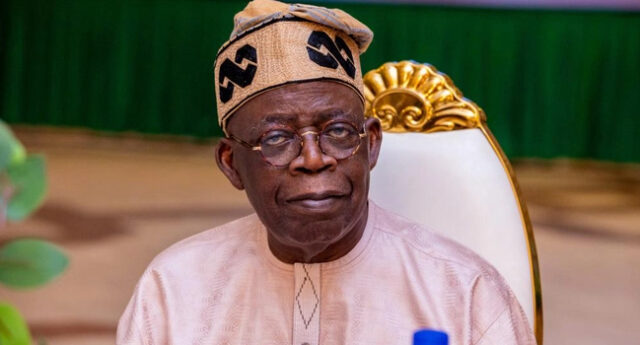One APC top chieftain boldly declared that neither the Peoples Democratic Party (PDP) nor the Labour Party (LP) possesses the political potency to challenge the re-election in 2027 of President Bola Ahmed Tinubu.
Speaking in an interview with The Punch, the APC chieftain opined that the opposition is disorganized and fragmented to the extent that they pose no threat at all.
He referred to internal crises within both parties that are still ongoing, with the Labour Party recently losing 18 seats in the House of Representatives and the PDP continuing to grapple with long-time leadership problems.
He went on to say that since the 2023 elections, the Labour Party has seen wholesale defections and uncertainty regarding its direction, especially at the national level.
- We will be Taking Legal Actions Against GTB — VDM Lawyer Reveals
- VIDEO: VeryDarkMan Reportedly Arrested on the Order of GT Bank after he Went to Enquire about the Incessant Debit on His Mother’s Bank Account
- E-money in Detention Over Abuse of Naira: VeryDarkMan Slams EFCC Over Alleged Ethnic Bias (VIDEO)
- Atiku & Obi Set to Work Together Ahead of 2027 Elections — Insider Reveals
- VIDEO: Seyi Tinubu Tried To Bribe Me With N100M, Had Me Abducted, Beaten, Stripped Naked — NANS President
- FBI, DEA set to Release Tinubu’s Old Drugs Investigation Records
The PDP, meanwhile, is still reeling from internal divisions and declining influence in key states—issues that might cost both parties dearly in the next elections.
The APC leader called the ruling party an “armored vehicle” that would crush any fragmented opposition with ease unless they unite.
His words echoed those of past PDP Deputy National Chairman Chief Bode George, who last year said the Labour Party cannot win at the national level without the involvement of PDP. He added that it is only a merger between the two that can threaten Tinubu seriously in 2027.
But former APC National Vice Chairman Salihu Lukman was not of the same view, warning that Tinubu’s second term is not guaranteed if Nigerians coalesce around a decisive alternative.
As the rush to 2027 gains momentum, all wait with bated breath to see if the opposition sinks into further disorganization—or surges on a common consensus.










